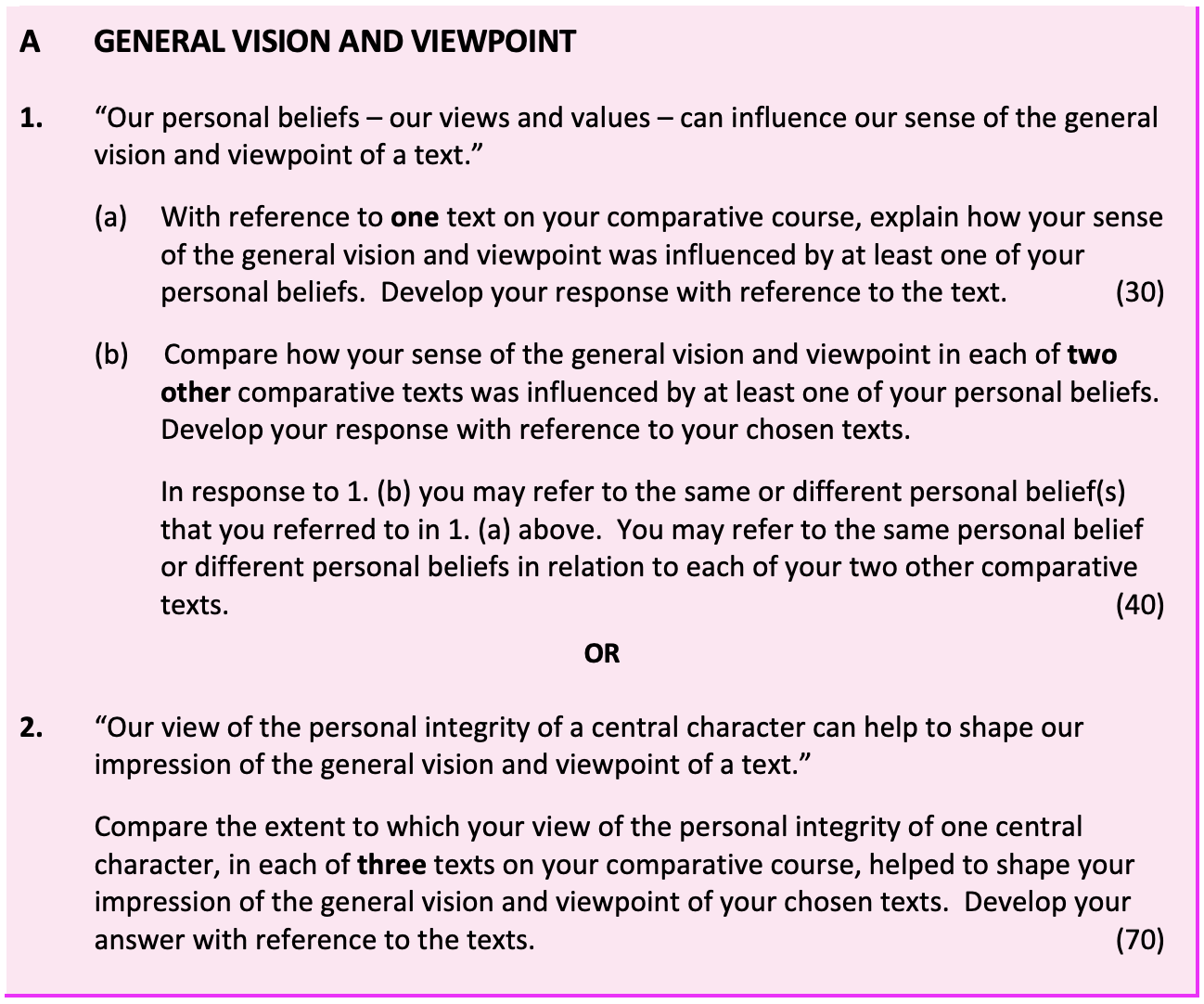For me, paper two was always the hardest of the English exams to prepare for in leaving cert. I always felt there were just too many variables, and too much poetry, your main text okay that was fine, you could completely get that down, the comparative was a little more tricky, but paper 2 always scared me more than paper 1.
It's a completely different beast as they say. That does not mean you cannot be prepared, in fact, if you know your strengths, just like in paper one you can pick up valuable points all over paper 2.
"There are no secrets to success. It is the result of preparation, hard work, and learning from failure."
- Colin Powell

The Single Text
I always felt a book can transport you from your current reality to anywhere and anytime and there's no reason your prescribed texts shouldn't be enjoyable for you.
I asked my teacher for my texts before we started reading them. I wanted to watch the movie/tv show and read them at my own pace. There is nothing more boring than 20+ people reading half a page a day for a year while taking notes.
If you can do it in your own time, you can make voice notes, these will help your notes stand out from the crowd and they're more honest especially when it comes to answering exam questions later on. When you say things like "I feel" or "in my opinion" it makes the examiner understand that you've actually paid attention to the text and characters within and that you're not just writing what you've been told is the answer.
In the last few years Magaret Atwoods The Handmaids Tale has been a regular feature on the single texts list. Another persistent favourite is William Shakespeares Macbeth, both of which are excellent choices. In most years (especially if your sitting the higher level English examination) answering a question on Shakespeare is a requirement, whether that be as part of the Single Text question or the Comparative Section on paper 2.
As far as Shakespeare goes, Macbeth is one of the easier dramas to grasp and quote, the characters can be made relatable too if you need them, and of course, if you struggle to absorb information via text, there are many, renditions of the play to be watched online or on stage.
This is also why the Handmaid's Tale is a good choice, you can now watch it as a series. Meaning you can get a better connection with the characters and theme.
Just by referring to your text consistently, starting sentences with "In my opinion" "My understanding of the text" "To me this character" or "What I felt" regularly, even without quotes, it shows the examiner that you had a good connection and understanding of your studies.


The Comparative Section!
If you have thoroughly read and made notes on both texts, this section should actually be ok. Just don't get caught out by the way the question is phrased. I said this about paper 1 and I'm going to say it about paper 2.
Always read and reread the question!
Here's an example of a question you might be asked, taken from the higher level exam in 2019:

Try the following tips for answering the comparative section, it might just pick you up those extra points!
It's important to try to structure the answer your answers in this section, especially if you are struggling with actually answering the questions.
Introduction: Name the texts you’ve studied, and give them abbreviations. Explain the definition of theme/issue. Explain how you will structure your answer. The theme of a text is essentially the fundamental message and backbone of the text.
The Body of Your Answer: As a rule of thumb, you should aim for three points in the main body. Three long paragraphs. Within each paragraph, you should be discussing all texts at the same time. Topic sentences are extremely important. I can not stress enough how important it is to refer to the question in this section.
Conclusion: Length is not important in a conclusion. It is important that you give a brief summary of what you did, as this is the last part the corrector reads before marking you. Short and sweet is the trick. "In conclusion, I can honestly say that my view (re mention previous points briefly)"
Use keywords for comparisons: Similarly, in contrast to, this is mirrored, reflected, reinforced, despite, alternatively.

Poetry
There are two sections to the poetry part of English Paper 2.
First, you have the Unseen Poem which is similar to the Comprehension section on paper 1 in the way that you are given a text to read followed by questions of which you only have to answer one. This means my advice for answering this question is the same as that was.
I recommend you completely read the text, and then read the questions. The second time around using a highlighter highlight anything you noticed in the question while you are reading the text again. Re-read the questions, and highlight anything in the question you are unsure of whether it's A or B then you know that question is not for you.
The Prescribed Poetry!
So, every year there are A LOT of poems, by 8 poets selected, no teacher, no matter how wonderful they are, ever gets through every single poem...
Frankly, it's a nightmare! Then the exam comes along and you're only asked about 4 poets, hopefully, one you studied is in there (it wasn't for me) and the question is very broad.
It might read something like what follows:
W.B. Yeats
“Yeats’s poetry is both intellectually stimulating and emotionally charged.”
Discuss the extent to which you agree or disagree with the above statement. Develop your response with reference to the themes and language evident in the poems by W. B. Yeats in your course.
You've spent all this time learning individual poems and nothing was asked about them, instead, you were asked about the man himself, how he shows his intellect and emotion in his themes and use of language. My advice?
Search the actual list of prescribed poems and poets... the podcast and youtube the be-jaysus out of it! You're asked your opinion in these questions, yes a reference and quote here and it is important, but it's more important to know what you're talking about.
Summarise with AI:















